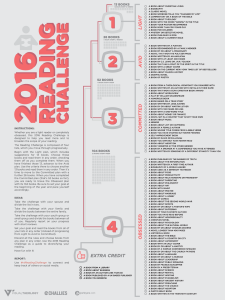Lunes Linkage is the occasional Monday post linking to articles I have run across and found interesting...
~~~
Here's one from a while ago (April) - Trump is a Fool.
Donald Trump is a fool—not because he is wrong about so many things, but because he is right about a few others. The fool is not only one who speaks nonsense, but one who speaks sense on the topic no one else will touch. He is the court jester pointing out the king’s failings. Were any sane man to make the same statements, he’d be put on a pole. But the fool, amid a general stream of nonsense, is able to touch on the rare uncomfortable truth.
~~~
A possible treatment for the gene that I carry, and that affects my son,
Patients with Leber’s hereditary optic neuropathy (LHON), a rare genetic mitochondrial disease that leads to vision loss, show sustained improvement in a follow-up to a Phase 1/2 clinical trial with GenSight Biologics’ therapy candidate GS010.
Patients recruited to the study had been diagnosed with LHON for approximately six years. After 78 weeks of follow-up, promising results were reported, with improved vision in the eye that was treated.
LHON is inherited through the maternal mitochondrial genes. It causes degeneration of retinal ganglion cells, a specific type of neurons in the retina. This condition begins with blurring and clouding, generally in a person’s teens or 20s.
~~~
In the spirit of Christmas season, I want to be charitable to President-elect Donald Trump and express my thanks for his success in 2016.
While there still remains plenty of cause for concern, the continued boldness, energy, and vigor exhibited by the Trump transition team is giving me real hope and excitement. Here are 10 reasons this conservative is having a merrier Christmas season thanks to Donald Trump.
~~~
At the heart of Christianity and the gospel is the person and work of our Lord Jesus Christ. Apart from the “Word becoming flesh” (John 1:14) and the incarnate Son of God living and dying in our place as our Savior, there is no salvation. Apart from the coming of the eternal Son, his taking on human nature and acting as our covenant representative, there is no hope for the world.
It is appropriate at Christmas to think more deeply about the incarnation. Here are 10 things we should grasp.
~~~
Another from a while ago - courtesy Doug WIlson (there's a lot of political incorrectness, but good information.)
Show me your forearms. Unless there are scars all over them, then I honestly don’t want to hear your views of the inadequacy of these cultural clashes (Gal. 6:17). When the barbarians are throwing their scaling ladders against the city walls, if the only defenders at the top of those walls are Chick Fil A employees in paper hats and hot grease from the deep fryer, and rednecks with their beards and shotguns, and nobody at all there from Red Brick Memorial Reformed, Rev. Forsythe P. Snodgrass, D.Min, minister, then let us be frank. We shouldn’t blame the folks who are there.

